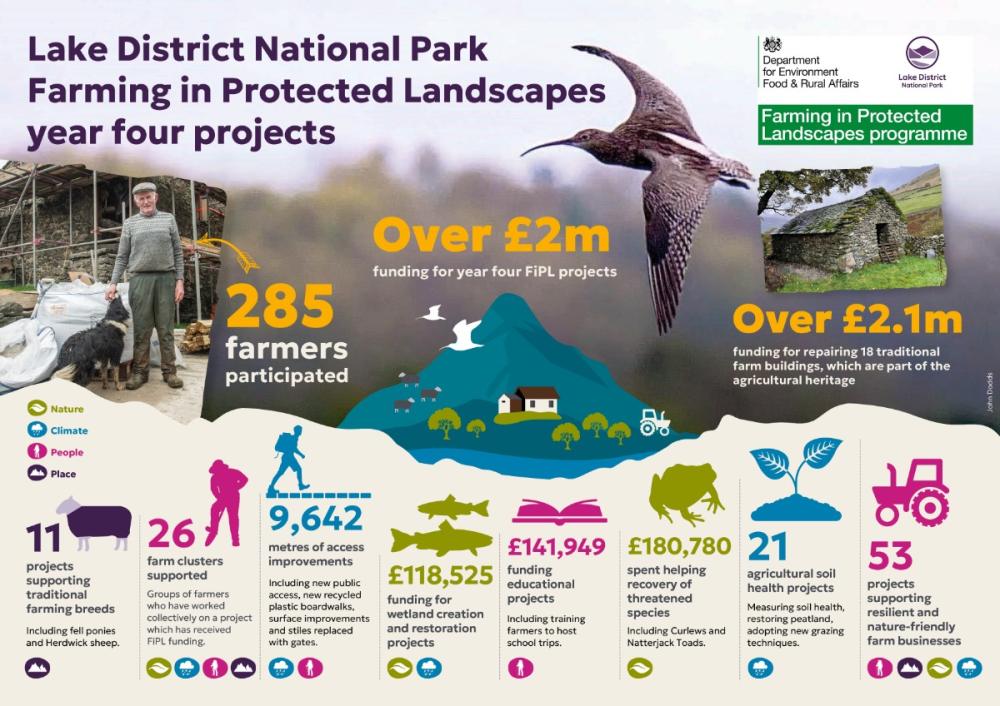search
date/time
 | Yorkshire Times A Voice of the Free Press |
12:00 AM 16th June 2025
travel
A £2m Boost For Lakeland Farmers Also Supports Tourism

The Lake District National Park Authority (LDNPA) is celebrating the success of a fourth year of funding from DEFRA’s Farming in Protected Landscapes (FiPL) grant.
The scheme provides funding to farmers and land managers in the Lake District, supporting projects which; support nature recovery, mitigate the impacts of climate change, provide opportunities for people to discover, enjoy and understand the landscape and its cultural heritage, protect or improve the quality and character of the landscape or place.
Between April 2024 to March 2025, FiPL provided £2,038,269 in funding for projects, which saw a total of 285 farmers participate.
Across the 2024/2025 FiPL projects:
• 26 farm clusters were supported
• 11 projects supported traditional farming breeds
• 9,642 metres of access improvements were made
• £118,525 supported wetland creation and restoration projects
• 53 projects supported resilient and nature-friendly farm businesses
• £180,780 helped the recovery of threatened species
• 21 were agricultural soil health projects
• £141,949 was delivered on education projects

LDNPA FiPL Team
You can read about some of the projects FiPL has supported below.
Hill Top Farm Tours
With a grant contribution secured through the FiPL scheme, the Dixon family, who’ve farmed at Hill Top for 35 years, are now offering farm tours on selected dates. The 250 acre plus farm, in Near Sawrey, is attached to the house of the famous children’s author Beatrix Potter.
The tours give a rare glimpse beyond the gate into life on a working Lakeland farm today. The grant supported branding and essential health and safety measures, including a mobile handwashing station, foot dip, mats, disinfectant, and secure sheep-handling gates.
Melbreak Curlew Recovery Project

Melbreak Curlew Project
David Gardiner, who manages the project, explained it was set up a couple of years ago through a local community interest in nature recovery.
David said: “There were four curlew nests which helped us realise there are more curlews breeding in our valley then initially thought. The numbers of curlews have declined by about 50 percent.
“Curlews return to the same place where they were born and breed, so if the population dies in a particular area it’s difficult to get it restored. We know numbers are declining, what we’re trying to do is get in there and protect the curlews we have before they all disappear and we can’t get them back.”
Using equipment like binoculars, telescopes and cameras, paid for through FiPL funding Tim Newton, a farmer who volunteers with the project, helped identify and set up measures like fencing to protect ground-nesting birds and their chicks.